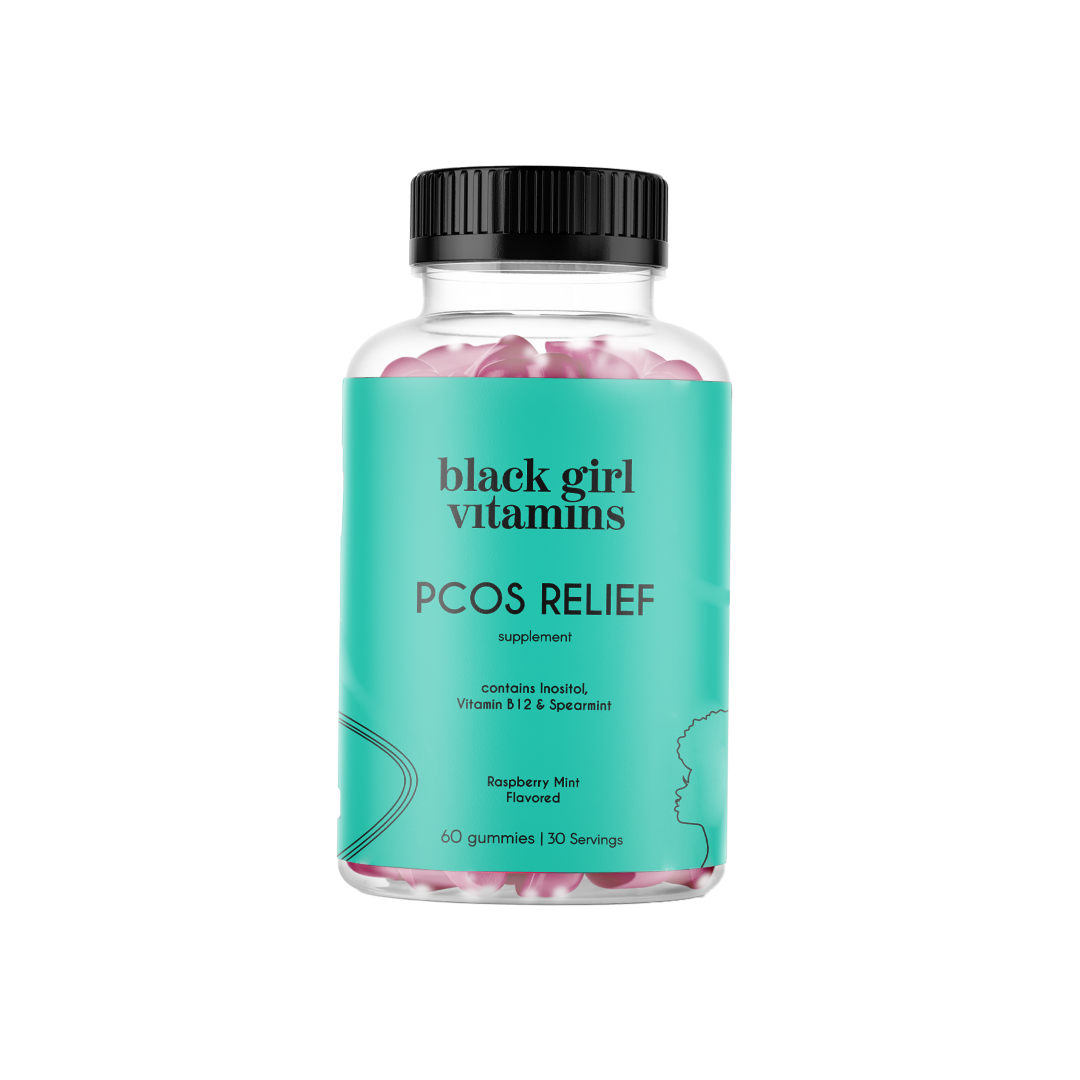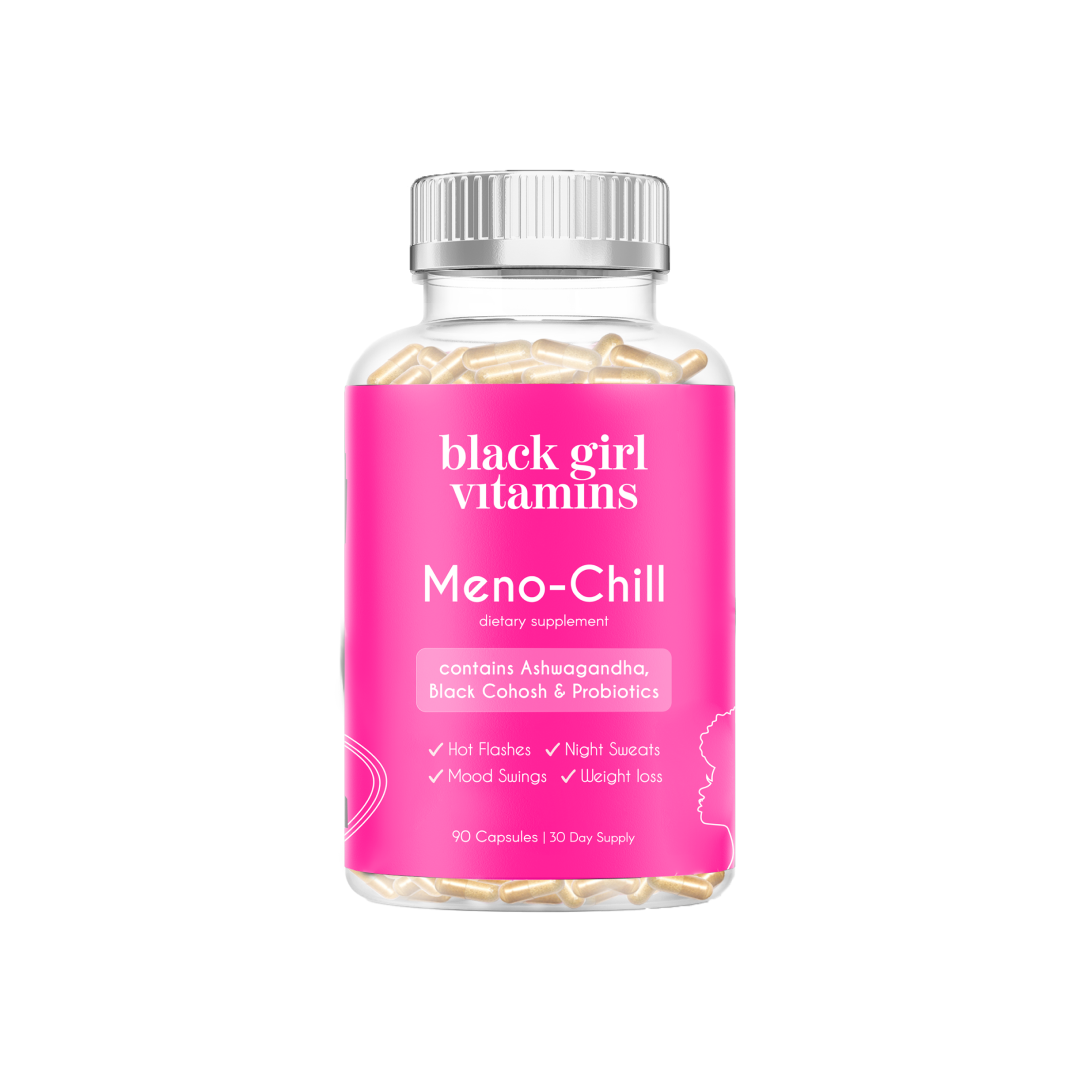Why Am I So Tired? Step-By-Step Guide to Beat Fatigue
Reviewed by | Bryanne N. Standifer-barrett, MD
Ganiyat Adeniji for Black Girl Vitamins
Do you get easily tired? Do you feel mental or physical exhaustion? You may be experiencing fatigue. You may take longer to get out of bed or off the couch. Your legs may feel uncomfortable, heavy, and submerged. Your muscles may appear to be unable to operate properly, and your chest may feel heavy. It may even affect your social life.
Feeling sleepy every now and then is normal. But fatigue that sticks with you can be a signal your body is dealing with an underlying medical condition. If you often find yourself asking, “Why am I so tired?” it’s important to examine why you’re so exhausted and what you can do about it.
What is fatigue?
Fatigue is an "overwhelming, debilitating, and sustained" exhaustion that hinders one's capacity to function and carry out daily activities. It is a condition characterized by extreme weakness, and it is frequently described as a mental and physical lack of desire and enthusiasm. However, it is not the same as drowsiness or sleepiness, both of which signal a need for rest.
Common symptoms of fatigue are often mislabeled as other things. You may notice physical ailments like joint pain, muscle weakness, or shortness of breath. Mental symptoms include trouble focusing, feelings of irritability or sadness, and reduced motivation.
It has been recorded that up to 35% of teenagers and at least 20% of patients experience fatigue at least four days each week. Men and women may experience fatigue in different ways. Men may experience fatigue as tiredness, but women may experience fatigue with some form of anxiety. Tiredness, weary, listlessness, and rundown are other words used to express fatigue.
What are the most common causes of fatigue?
A variety of factors can contribute to fatigue. Research suggests that poor sleep habits or inactivity are among the lifestyle variables that may be associated with exhaustion most of the time. Furthermore, drugs may cause exhaustion or be linked to depression. Fatigue could also be a symptom of a condition such as anemia, hypothyroidism, fibromyalgia, heart disease, sleep apnea or other sleep disorders, or chronic fatigue syndrome (CFS) that necessitates medical care.
Common causes of fatigue and exhaustion include insomnia (the inability to fall or stay asleep), stress, depression, an unhealthy lifestyle (such as eating poorly and exercising infrequently), and handling life demands (such as caring for a new baby or grieving). Other causes may include being overweight or obese, misusing alcohol often, abusing illegal substances such as cocaine, or consuming excessive amounts of caffeine.
Fatigue and Black Women
Fatigue can be a manifestation of low vitamin D levels, along with other serious conditions. Research suggests that Black women and brown women are more often vitamin D deficientthan their White counterparts. An estimated 40% of American adults may be vitamin D deficient. For African Americans, that number may be nearly double at 76% according to a new study by The Cooper Institute. Another research paper in the Journal of Black Psychology titled “Fatigue Severity among African Americans: Gender and Age Interactions”, concluded that “African American women had significantly higher rates of fatigue when compared to African American men”.
Black women also have a higher risk of some health conditions that often cause fatigue:
- Iron-deficiency anemia
- Hypothyroidism (sometimes called underactive thyroid)
- Sleep apnea
- Chronic fatigue syndrome (CFS)
Black women, most of the time, suppress their emotions including feelings of anxiety and fatigue until it becomes chronic. Amber Cabral in an interview with Washington Post’s Amanda Miller Littlejohn, also suggests that “Black women have been groomed to overachieve, we know how to boss up and get it done. So it’s about reprogramming the idea that it’s weak to say you can’t do more.”
You already know there’s no end to the chronic stress in your life as a Black woman. Racism, discrimination, and income inequalities that can impact your access to healthy food or quality healthcare add up. Caregiving responsibilities tax your mental, emotional, and physical resources — and all of these can contribute to the bone-deep fatigue you experience.
However, fatigue is not a normal feeling and tiredness should not be suppressed, even for black women. fatigue can have a huge impact on your daily life. It’s not weakness — it’s your body saying something needs attention.
Can Lifestyle Changes Help Fatigue?
If you are experiencing persistent or severe fatigue, it is important that you consult your doctor because the best treatment for fatigue is dependent on the underlying cause. However, Here are Some lifestyle changes to help manage fatigue.
- Vitamin D3 Supplements: fatigue could be a result of vitamin D deficiency, rather than a stressful schedule. Sunlight alone cannot provide the necessary amount of vitamins needed by melanin-rich people. Black Girl Vitamins D3 gummies are great for vitamin D deficiency, therefore they help to manage chronic fatigue. The BGV energy bundle is even better with an infusion of vitamins B12, D3, and Iron gummies. These supplements combat fatigue, increase energy levels, and promote vitality so you can say goodbye to fatigue and hello to a happier, more energetic version of yourself.
- Exercise regularly: Physical activity can boost your mood, give you more energy, and enhance your overall health. Aim for at least 30-60 minutes of moderate-to-intense aerobic activity per week, such as swimming, cycling, or walking. Certain strength training activities can also help you gain muscle growth and endurance. However, avoid overdoing it or working out too close to bedtime as this may interfere with the quality of your sleep.
- Get enough sleep: Sleep is essential for mending your body and renewing your energy. A consistent sleep schedule should be observed, and you should strive for eight to nine hours of uninterrupted sleep each night. Avoid stimulants such as caffeine, alcohol, nicotine, and others before going to bed because they can disrupt your sleep pattern.
- Avoid known stressors: Stress can deplete your energy and negatively impact both your physical and mental health. Determine the pressures in your life, such as problems at work, with family, or with finances, and attempt to reduce or eliminate them. You can also engage in stress-reducing activities such as progressive muscle relaxation, yoga, meditation, and deep breathing to manage stress.
- Eat a nutritious diet: The food you eat has an impact on your health and energy levels. Choose foods abundant in protein, fiber, healthy fats, vitamins, and minerals, these can keep your blood sugar levels stable and provide you with consistent energy.
- Drink plenty of water: Dehydration can cause headaches, fatigue, lightheadedness, and problems concentrating. Make sure you drink enough water throughout the day to stay hydrated and support bodily functions. Aim for eight glasses of water every day, while the actual amount will depend on your age, weight, activity level, and climate. Herbal teas, juices, and soups are also acceptable fluids.
- Limit Alcohol: Alcohol might seem like it would be a relaxing choice before bed, but it can make you fatigued the next day by making it harder to get good sleep.
- Reduce Caffeine: Drinking caffeine may be a short-term pick-me-up, but it can increase your anxiety and make it more difficult to get quality sleep.
When Should I See a Doctor About My Persistent Fatigue?
It’s impossible to put together a complete list of the serious conditions and circumstances that could cause you long-lasting fatigue. Talk to your doctor if you’re experiencing fatigue with symptoms like unexpected weight loss or weight gain, shortness of breath, or irregular heartbeat.
Only they can offer a complete evaluation and blood tests to uncover the medical conditions that could be causing your symptoms.
It is important to know that fatigue is a symptom, not a specific ailment or medical condition. Those who are fatigued usually have one or more major complaints. This could vary among individuals and include a lack of motivation or an inability to start activities, becoming easily tired, feeling mentally exhausted, or having difficulty focusing or remembering things. Fatigue is typically a symptom with a slow onset, which means it appears gradually and worsens over time. However, it can be managed by adding some lifestyle choices like exercises, meditation, and treating yourself to the best self-care health supplements from Black Girl vitamins.
Fighting Fatigue and Reclaiming Your Life
Understanding the potential causes of fatigue within the context of your life as a Black woman is important. This knowledge can help you work with your doctor to eliminate the possibility of underlying medical conditions and identify lifestyle changes that can help.
Don’t forget that fatigue is not a weakness. It’s a signal that your body needs help keeping up. When you give yourself the support you need to address the cause of your fatigue, you’ll be able to reclaim your energy and health and live a fulfilling life.
Sources:
Hypothyroidism Hikes Death Risk in Blacks | MedPage Today
Differences in Symptoms Among Black and White Patients With ME/CFS | National Library of Medicine
The Effects of Alcohol on Quality of Sleep | National Library of Medicine
Effects of Caffeine on Sleep Quality and Daytime Functioning | National Library of Medicine




























